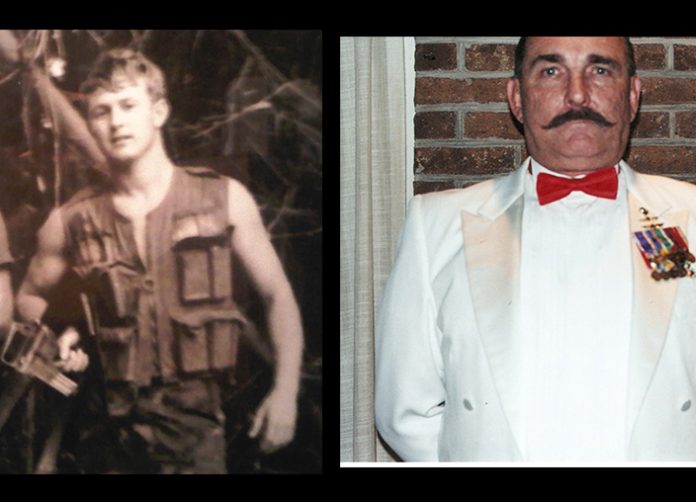Gentlemen’s club veterans Randy Beasley and the late Duke Dearing combined, opened and staffed more clubs than any two people in the industry’s history (sadly, Dearing passed away on July 24, 2019, after losing a battle with cancer—Ed.). They headlined the ED Hall of Fame induction class of 2011, and as a salute to all of our industry veterans, we look back on the ED Magazine article that recapped their Hall of Fame induction (ED Magazine, November 2011).
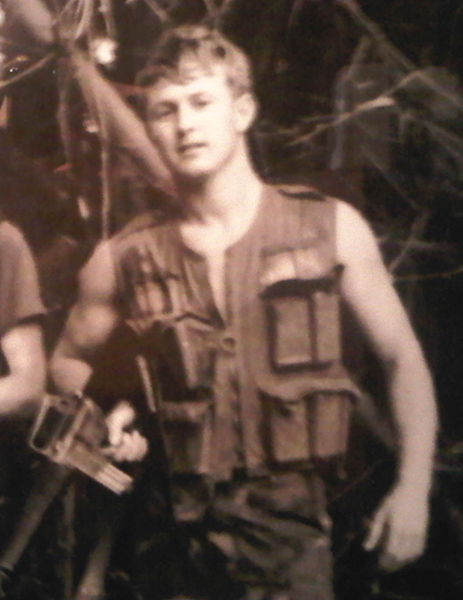
In 1969, amidst the chaos and tragedy of a still-raging war in Vietnam, Gunnery Sergeant Duke Dearing received a battlefield commission for exemplary leadership. Initially serving as a squadron intelligence chief and helicopter door gunner, Dearing was a Force Recon Marine who was routinely promoted throughout his military career, including his two-year tour in the jungles of Southeast Asia. The Orlando, Florida native finished his stint in the Marines in 1971 as a Naval Aviation Observer (Airborne FAC/forward air control), flying out of the Marine Corps Air Station in Jacksonville, North Carolina.
In that same year—1969—Randy Beasley was also bravely serving his country; in his case, it was with the U.S. Army in the 10th Pathfinder division. Pathfinder infantrymen were the brave souls inserted into areas to establish landing zones for air assaults or other helicopter operations. Also an Orlando native, Beasley ended his tour in 1970 and began pursuing a college degree.
There was surely no way to know it then, but these two men—though their paths had never crossed—would come together to become two of the most influential and accomplished executives in the adult nightclub industry.
The transition from guns to girls, girls, girls
Advancing as far as he could in the Marines, Dearing left the Corps in 1971 to pursue a college degree. This lead to a new career in law enforcement, and he began working as an undercover police officer in—of all places—Thee Dollhouse in Orlando, which was then owned and operated by a young entrepreneur named Michael J. Peter. Dearing was so impressed by Peter’s operation that he decided to open his own bar and restaurant in Winter Park, FL, a suburb of Orlando. One of his most frequent customers was—you guessed it—Michael Peter.
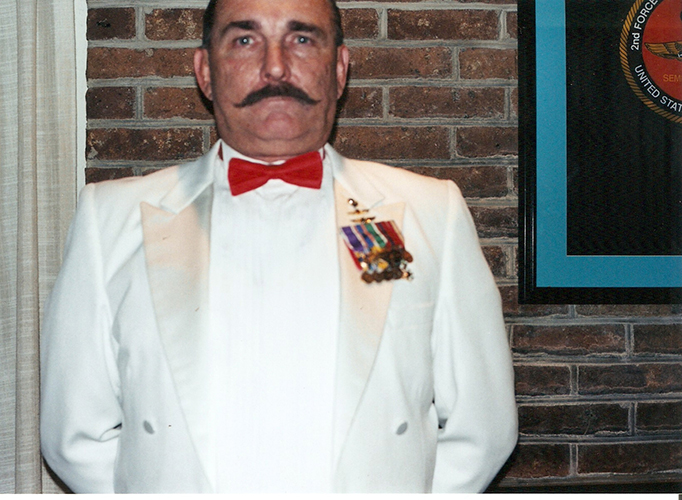
“When Michael was about to open another Dollhouse location in Cocoa Beach (FL), he knew that he needed someone who also knew the restaurant business,” recalls Dearing. “And since he knew me from my restaurant, he hired me to do it. From there, I went on to run both of those Dollhouse locations; that was 1981.”
Beasley, meanwhile, also entered college upon his return from Vietnam. He then began working for Seagram’s in Orlando, where he met—no surprise here—Michael J. Peter. Though he moved to California to start his own business, he admits that he “lost his ass” in the process and came back to Orlando, where he began working for Peter, also in 1981.
“People thought they were going to get ripped off when they went into the clubs; they were hiding their money in their socks. And here we were, presenting ourselves as if we were a five-star Marriott. It wasn’t as simple as, ‘Here’s a new way of doing things.’ It was a knock-down, drag-out fight with almost every customer and entertainer to get them to understand what we were trying to do.” – Randy Beasley
While they surely didn’t know it at the time, Beasley and Dearing were now part of an organization, headed by Peter, which would help transform the dingy “strip clubs” of the 1970s into the gentlemen’s club of the 1980s and ‘90s. Beasley recalls those first few years with Peter, as the clubs they operated were introducing philosophies that were very foreign in an environment that was often seedy, and sometimes even dangerous.
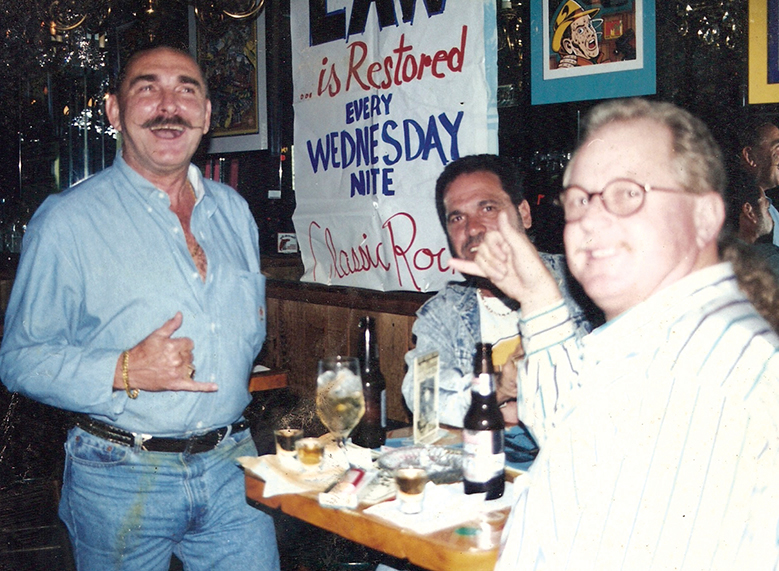
“Michael had a degree in hotel and restaurant management and hospitality [from Cornell University’s renowned School of Hotel and Restaurant Management], and he was introducing the idea of high-class operations, five-star dining, proper etiquette, cleanliness, etc., into this industry,” says Beasley. “It was a methodology that had to be implemented in an industry that really wasn’t used to any of those things at the time. And we—especially Duke and myself—were pressured to implement this methodology, and we did.
“But it was very difficult at first,” Beasley continues. “People thought they were going to get ripped off when they went into the clubs; they were hiding their money in their socks. And here we were, presenting ourselves as if we were a five-star Marriott. It wasn’t as simple as, ‘Here’s a new way of doing things.’ It was a knock-down, drag-out fight with almost every customer and entertainer to get them to understand what we were trying to do.”
“When I first started with Michael, adult clubs were typically owned by either bikers or the Mafia,” Dearing adds. “But Michael J. Peter, with his extensive education and background in hospitality, changed all of that. He observed that the Playboy Club model could work in the adult club industry. So Randy and I were on the ground floor of creating that gentlemen’s club environment with Michael.”
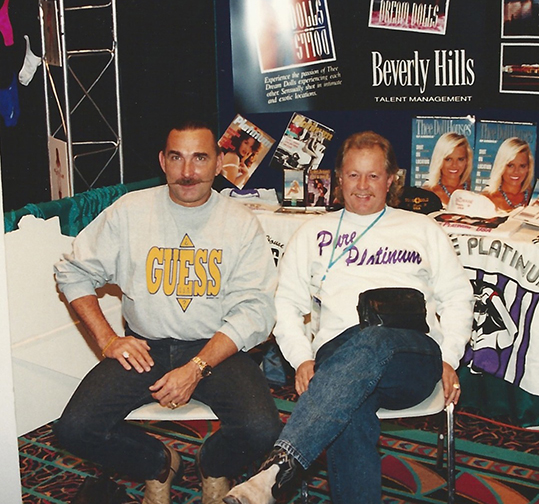
By the late 1980s, both Beasley and Dearing had become crucial cogs in the wheel of Peter’s burgeoning company. As he during his tenure with the Marines, Dearing rose in Peter’s ranks, first becoming a regional supervisor in South Florida, then as Vice President of Acquisitions and finally, as the National Director of Operations. Combining his vast leadership experience in the Marines with his newly acquired skills as an adult nightclub operator, Dearing was able to leave a lasting imprint at each club in which he worked.
“Everybody is a human being, everyone is different, so it’s important to treat everyone fairly; if you do that, you will get better results,” says Dearing. “We deal with people from every walk of life, from the blue-collar worker to the wealthy businessman. It’s my job to make all of these people feel comfortable and welcome sitting next to each other. Ultimately, this is an environment of service and hospitality.”
Beasley went in a slightly different direction, as he became more actively involved in working with entertainers. As President of Beverly Hills Talent Management—also owned and operated by Peter—Beasley helped provide talent for TV shows, movies, calendar shoots and videos. It is this experience that Beasley often points to whenever he’s asked how he’s been able to have such success recruiting and working with entertainers throughout his career in the adult nightclub industry.
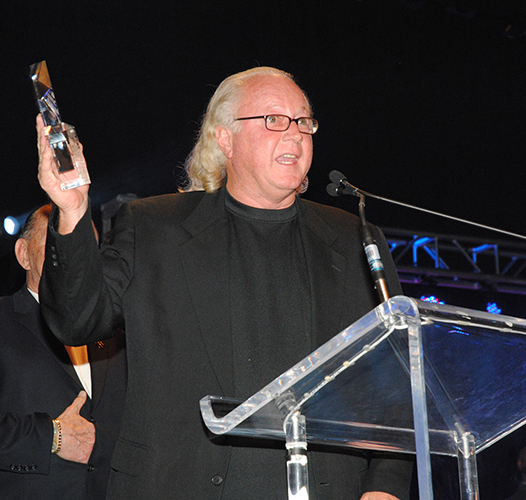
“The ultimate stamp I put on that specific time period, and on my career in this industry, is that our entertainers are the most valuable asset we have and should be treated as such,” says Beasley. “I always asked that everyone in the club treat our entertainers respectfully, especially because they have the hardest job in the building, bar none. The crap they have to put up with from customers … it’s unbelievable. We need to treat them like the stars they are, and do that truly from the heart.”
As Beasley explains, his time with Michael Peter’s organization eclipsed with the opening of Stringfellows/Pure Platinum in New York City in 1993, which he describes as the “culmination of the upscale gentlemen’s club movement.” It was at this point, Beasley notes, that he started seeing many other adult clubs embracing this new “gentlemen’s club” philosophy.
“We deal with people from every walk of life, from the blue-collar worker to the wealthy businessman. It’s my job to make all of these people feel comfortable and welcome sitting next to each other. Ultimately, this is an environment of service and hospitality.” – Duke Dearing
“The way I explain that philosophy is, we make our guest feel as comfortable as if they are guests in our house,” says Beasley. “What would you do if a guest came into your house? You’d welcome them, you’d show them where the food is, you’d ask them if they want at cocktail, you’d show them to a comfortable seat, you show them where the bathrooms are, and you’d make them feel right at home. It seems simple; but at the time, it wasn’t.
“We also had to make the entertainers understand why it was important for them to be ladies; to wear gowns, to have their hair done, to smell nice, to handle themselves the right way,” Beasley adds. “That’s why we had house moms and hairdressers, and I do to this day. We also had to teach them how to talk to the customer; you just can’t walk up to them and ask them if they want a dance. You have to sit down and talk to them, be friendly, have a conversation.”
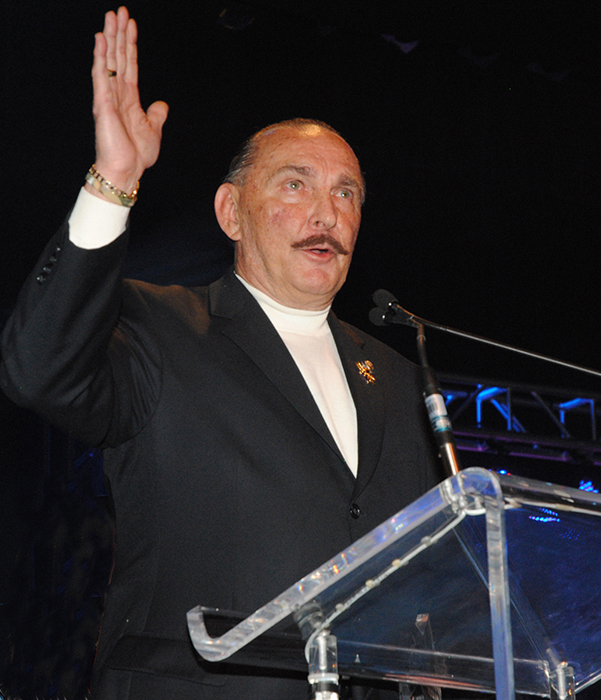
Though highly successful within the Michael J. Peter organization, Dearing and Beasley both moved on to new opportunities as the 20th century came to a close. Dearing began working for the IEC/PT’s Showclubs chain, where he is now their National Operations Supervisor. Beasley became a club management consultant in the late ’90s, helping to open clubs in the U.S. and across the world in such locations as Moscow, Greece, Spain, Germany, Mexico City, New York, Dallas, Chicago and Los Angeles. Eventually, he became a club owner himself with the Rachel’s Gentlemen’s Club locations in West Palm Beach and Orlando.
Their paths may have eventually taken them in separate directions, but through every twist and turn, Beasley and Dearing have remained close friends. They speak at least once a week, and text often. And they both refer to the other as a “brother.” From the jungles of Southeast Asia to the sequin-and-stiletto-filled showrooms of the gentlemen’s club industry, Duke Dearing and Randy Beasley have made a lasting impact on an entire industry.
“He’s the most professional, stand-up guy you’ll ever meet,” says Beasley of Dearing. “He’s a man’s man, as honest as the day is long. He’ll give you the shirt off of his back. But if you hurt one of his brothers, he’ll knock you out. He’s the kind of guy who will stay with you through thick and thin, no matter what.”
“Of all the people in the world that I’ve met, Randy is the only one I know who’s never had one bad word said about him,” says Dearing of Beasley. “And that’s a real nice thing to be able to say about someone. He’s a genuine Southern gentleman, and he’s an excellent friend.”
















